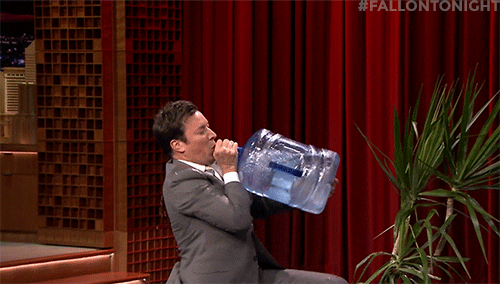Everyone could benefit from 5g a day
Creatine is a very popular supplement, if you’ve ever touched your toe in the pool of supplements world, you’ve probably heard of it.
Maybe you’ve heard that creatine bloats the whole body, or you’re familiar with the age-old creatine cycling tactic. Both are myths and we’re going to talk more about that today.

Creatine is just a common supplement, as much as whey protein and coffee to give you that boost.
It helps improve exercise performance, muscle recovery, increases lean body mass, and provides cognitive benefits.
In addition, it is relatively inexpensive, costing less than 1 buck per dose.
Creatine is found in foods of animal origin, in general, in meat. Vegan creatine, on the other hand, is produced synthetically from plants, such as amino acids from grains, legumes and vegetables.
If you’ve never heard any of that, that’s fine, let’s get down to the facts here: Creatine Monohydrate is the most tested, safe, and effective sports supplement around. And you don’t even need to be a gym rat to benefit from it…
Is creatine an athlete thing?
According to Dr. Lane Norton, PhD in Nutritional Sciences, creatine supplementation has been widely used by endurance and endurance athletes to increase cellular hydration, which can improve muscle strength and physical performance.
Dr Lane is considered one of the world’s leading experts in understanding how we extract energy from our food and how exercise and what we eat combine to impact things like body composition and overall health. According to his studies, there is no doubt that creatine can improve the ability to perform high-intensity exercise, resulting in significant benefits for sports performance.
However, even those who are not athletes, when they take creatine, they also saturate (hydrate) their muscles. Training or not training, when supplementing, the levels of this saturation are maintained.
It’s important to say this, because usually those who train think that they should only take creatine on the days that they lift weights or do high-intensity cardio, but this is not true.
⚠️ Another myth to be debunked: you don’t need to cycle creatine, as you do with steroids. That is, that old story of taking higher doses for 5 to 7 days, then reducing to the normal dose, is a myth.

Taking larger doses initially will saturate the muscle cells faster, but it can also cause irritation in the intestine, the safest thing is to take a maximum of 5g per day and, in a short time, saturation is reached equally.
How it works
Muscle is made up of 70% water, creatine acts as an osmolyte by drawing water into the muscle cells.
This is known as “osmoregulation” and can be anabolic, that is, it can create an environment that favors muscle growth, which is why taking creatine improves lean mass, because adequate hydration of muscle cells can improve their strength and ability to contract , a hydrated cell is generally more efficient in its functions, including metabolic waste removal and fuel recruitment.

Creatine works even in non-exercisers because it is a substance that helps with natural body functions, such as the production of ATP (adenosine triphosphate), which is crucial for cellular energy.
It supplies phosphate for the conversion of ATP to ADP (adenosine diphosphate) and then helps recharge the phosphate to recreate ATP, which results in more energy 🔥 This is important not only for your muscles, but also for your nerve cells and of the brain. …
Cognitive benefits
The brain consumes a lot of energy. 🧠
Creatine supplementation can increase ATP regeneration in the hippocampal region, which is important for memory. Dr. Nick Schmidlkofer says that creatine improves cognitive performance, especially in periods of stress or intense activity, because it provides more energy to the cells, it is an additional source of quick energy for the brain in these situations, which can lead to an improvement in focus, mental clarity and the ability to handle complex tasks.
It can also aid in recovery from traumatic brain injury (TBI) such as concussions or head injuries, as this extra dose of energy can aid in the healing and recovery of damaged tissue, assisting in restoring normal functions and reducing symptoms associated with brain injury. .
Regulation of neurotransmitters
Other positive effects of supplementation are on mood and depression. Depression is a complex condition and one of its aspects is related to low methylation. “Methylation” is a biochemical process that involves the addition of methyl groups (-CH3) to specific molecules, such as neurotransmitters and hormones. Creatine helps modulate methylation through the release of methyl groups and may be beneficial for people with low methylation.
Learning and memory
There is a creatine phosphate system in the brain, in the frontal cortex, which is related to the dialogue between neurons and glial cells (the ones that nourish neurons), some studies show that creatine supplementation seems to increase the activity of phosphocreatine in the brain, leading to changes in the functioning of the NMDA receptor (N-methyl-D-aspartate receptors), a type of glutamate receptor that has been implicated in various brain functions by increasing neuroplasticity.
Therefore, creatine supplementation may possibly promote positive changes in neural circuits, which may be related to improvements in depression symptoms and even the stomach, since the digestive system and the brain are connected through the gut-brain axis.
Research indicates that creatine phospho in the brain may play a role in regulating stomach and reward patterns. While there is still much to learn about this mechanism, the relationship between creatine and improved mood and depression symptoms is promising.
Adapting to life changes
Let’s dig a little deeper into these systems:
Phosphocreatine System: Phosphocreatine is a molecule found in muscle and brain cells. It plays an important role in regulating energy supply for high-intensity, short-duration activities, such as intense exercise or intense brain activity. Phosphocreatine acts as a quick energy reserve, releasing the phosphate group to regenerate ATP (adenosine triphosphate), the fundamental energy molecule in cells.
NMDA Receptor (N-Methyl-D-Aspartate): NMDA receptors are a class of receptors for glutamate, an excitatory neurotransmitter in the brain. These receptors play a crucial role in neuronal plasticity, a process that allows the brain to adapt and reorganize in response to new experiences and learning. Neuroplasticity is fundamental for the acquisition of new skills, memory and adaptation to changes.
The connection between the phosphocreatine system and NMDA receptors is related to the following aspects:
Energy and Neurotransmission: Phosphocreatine plays a role in maintaining ATP levels, which is essential for the efficient transmission of signals between neurons. This includes the transmission of neurotransmitters such as glutamate, which bind to NMDA receptors to initiate processes associated with neuroplasticity.
Regulation of Neuroplasticity: Studies suggest that phosphocreatine availability may influence NMDA receptor activity and therefore neuronal plasticity. By regulating energy balance and NMDA receptor function, phosphocreatine may influence the brain’s ability to adapt to new stimuli, learn and form new synaptic connections.
Maybe I repeated myself a little, but these are complex subjects and repeating them always helps to stick, right?
In summary, the interaction between the phosphocreatine system and NMDA receptors in the brain highlights how metabolic and neurotransmission processes are intertwined with the brain’s ability to change and adapt over time. This interconnection between cellular energy, neurotransmitters and neuronal plasticity contributes to our understanding of brain function and potentially to the development of therapies for neurological disorders.
⚠️ While more research is needed to fully understand this process, it is interesting to note that creatine may offer effects such as increased mania in people who already suffer from this condition.
In Practice: What to Expect
Just like any other supplement, creatine does not work miracles.
It’s like taking vitamin D or Omega-3, they are add-ons, they are extra things you can do for your health and functioning of this machine, which is the body.
Other than that, it’s worth remembering that each human being has their specificities, no supplementation has exactly the same effects on everyone, including some people naturally have higher levels of creatine in their muscles.
So, if you sleep well, eat well and get a good night’s sleep, the effects of creatine could be more or less as follows.
Initial Weight Gain: During the saturation phase, it is common to experience a temporary increase in weight due to water retention in the muscles.
Increased Strength: Many people report an increase in muscle strength, which can translate to lifting heavier weights or performing more reps.
Increased Endurance: You may notice an improvement in your ability to perform high-intensity activities for a longer period of time due to increased energy availability in your muscles.
Faster Recovery: Some people report faster recovery between workouts, which means less muscle soreness and fatigue after intense exercise.
Appearance of Muscles: Due to water retention in muscles and increased strength, muscles s can look fuller and more defined.
Improved Cognitive Function: Creatine has been linked to improvements in memory and cognitive performance, especially during times of stress or sleep deprivation.
Increased Muscle Mass: Although not a significant gain in 30 days, creatine can contribute to a gradual increase in muscle mass over time, especially when combined with proper training and diet.
Possible Side Effects: Some people may experience stomach discomfort or weight gain due to water retention. These effects are usually temporary and subside as the body adapts to the supplementation.
⚠️ Creatine can affect blood creatinine levels, which can be interpreted as a sign of kidney problems, but is not harmful to healthy people. According to Dr. Lyne Norton, although there may be an increase in creatinine, which can be a marker of kidney function, it is not a cause for concern as long as cystatin C levels are normal. Elevated levels of liver enzymes and creatinine are markers and do not necessarily indicate tissue damage. Correlation does not imply causation, you need to consider the big picture.
⚠️ Hair loss has been suggested as a potential side effect of creatine, but the evidence is not strong and comes from a single study in 2009.
Is it essential?
While supplements can be helpful, they are not necessary for progress. Proper nutrition, recovery, and intense training are key. According to Dr. Huberman, a daily dose of 1 to 5 grams is enough for most people to benefit without significant health risks, but it’s not essential for survival, of course. There is no evidence that taking a dose above this provides any additional benefits.
Finally, the time of day you take creatine doesn’t make much difference, the important thing is to take it regularly.
Sources
Understanding & Conquering Depression — Dr. Huberman
Dr Layne Norton: The Science of Eating for Health, Fat Loss & Lean Muscle | Huberman Lab Podcast #97
235‒Training principles for mass & strength, changing views on nutrition, & creatine supplementation
Pin this post

